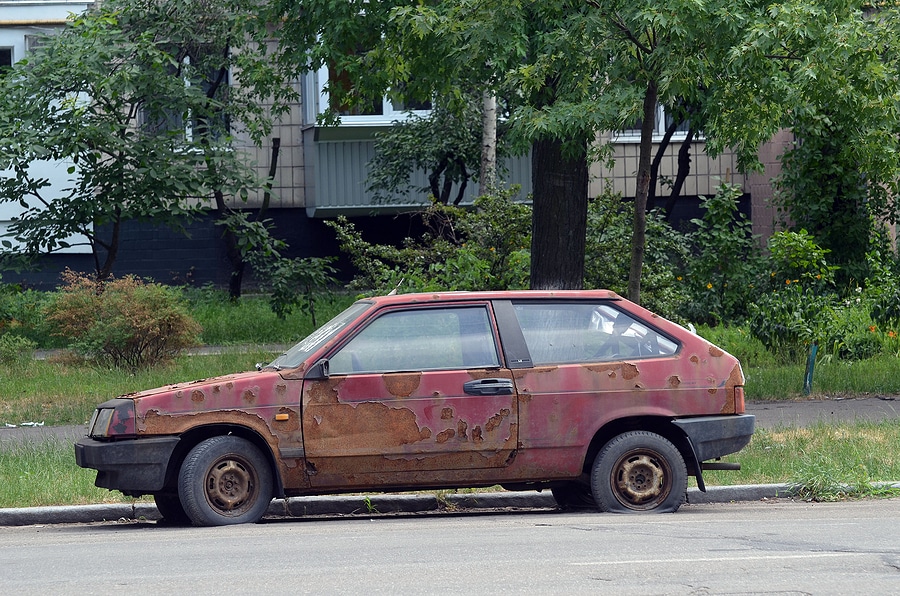The Ecological and financial Advantages of Reusing Scrap Cars
Reusing scrap autos offers various financial and environmental advantages that expand well past waste reduction. By reclaiming up to 90% of lorry components, this practice considerably minimizes land fill concern while preserving crucial natural sources. Additionally, it minimizes energy use and greenhouse gas exhausts connected to raw material removal and manufacturing. The procedure also produces work possibilities across different fields, from taking down to logistics, and offers customers with cost-effective automobile components. These benefits highlight the complex worth of recycling junk automobiles, yet there are even more aspects to take into consideration when reviewing its full effect.
Lowering Landfill Waste
Decreasing land fill waste via the recycling of junk autos plays a critical function in ecological preservation. When autos get to completion of their life process, efficient reusing processes can dramatically decrease the quantity of waste that ends up in landfills. Junk cars, if not appropriately reused, contribute to the growing issue of land fill overcapacity, worsening environmental deterioration and possibly contaminating soil and groundwater with unsafe compounds such as oil, gas, and heavy steels.

Furthermore, the reusing process mitigates the negative effects of automobile waste on biodiversity. Landfills are well-known for interfering with local communities, and decreasing the influx of junk vehicles helps preserve all-natural environments. Inevitably, reusing scrap autos is a calculated approach that cultivates sustainable waste management, lining up with wider ecological objectives.
Conserving Natural Resources
In enhancement to mitigating land fill overcapacity, reusing scrap vehicles plays a significant duty in preserving natural deposits. The automobile industry is greatly dependent on various metals, plastics, and other products that require extensive mining and handling. By recycling junk autos, we significantly reduce the need for basic materials, therefore suppressing the environmental degradation connected with mining activities. As an example, reusing steel from old vehicles reduces the need for iron ore extraction, which consequently reduces energy usage and greenhouse gas emissions.
In addition, the procedure of reusing car parts such as lead, aluminum, and copper is much less energy-intensive than generating these materials from virgin sources. This energy financial savings equates straight right into lowered nonrenewable fuel source consumption and lower carbon impacts (sell car to junkyard). Additionally, by reclaiming and repurposing materials, we expand the lifecycle of non-renewable resources, guaranteeing they remain readily available for future usage
In addition, reusing vehicle liquids like antifreeze, oil, and transmission fluid protects against dangerous substances from polluting soil and water sources. Via organized reusing efforts, these liquids can be purified and recycled, promoting a round economic climate and more reducing the stress on all-natural resources. Thus, reusing junk vehicles supplies a complex method to preserving our earth's important natural assets.
Developing Job Opportunities
The recycling of scrap automobiles not only profits the environment yet additionally boosts financial growth by producing task opportunities. This blossoming sector supplies a broad selection of work prospects, ranging from the initial collection and transport of old lorries to the detailed procedures of taking down, arranging, and repurposing the different parts.

The spreading of recycling plants better amplifies the job market, requiring roles such as engineers, equipment operators, and quality control specialists to guarantee and manage the advanced machinery conformity with ecological regulations. Also management positions, such as sales, marketing, and client service, see a surge as the market broadens.
Decreasing Manufacturing Prices
By integrating recycled products from scrap autos, makers can substantially lower production prices. The power called for to process recycled products is dramatically much less than that needed to produce brand-new products from scrape.
Furthermore, the recycling procedure aids simplify the supply chain by offering a stable increase of materials that are easily available and usually less expensive than recently extracted sources. These price performances are specifically critical in a very affordable market like auto manufacturing, where margins can be razor-thin. Additionally, the recycling of scrap cars aids alleviate the volatile rates of basic materials, allowing producers to far better forecast and control their production spending plans.
Offering Affordable Auto Components
When junk automobiles are reused, the availability of affordable car parts significantly boosts, benefiting both customers and fixing shops. Recycled auto components are usually cost a fraction of the expense of repairs, offering a cost-effective choice for car owners and technicians. This affordability can be essential for individuals that might not have the financial ways to purchase click new elements, allowing them to maintain their automobiles in operational and secure problem.
Service centers likewise gain from this increased availability of economical parts. By sourcing recycled parts, these services can decrease their operational costs, which can be handed about his down to consumers with reduced service costs. This, consequently, can result in higher customer fulfillment and loyalty, as clients appreciate the expense savings without endangering on quality.
Additionally, the quality of recycled parts has actually enhanced substantially over the years, many thanks to advancements in recycling processes and quality assurance actions. Many recycled components undertake strenuous testing to guarantee they meet sector requirements, providing integrity comparable to repairs - cash for cars denver. By giving a top notch and economically feasible alternative, the recycling of junk automobiles plays a critical function in supporting both the automotive repair service industry and the broader customer market
Final Thought
Recycling scrap vehicles offers substantial financial and ecological advantages by considerably minimizing landfill waste and conserving natural deposits. This method reduces manufacturing prices by recovering as much as 90% of car components, hence decreasing energy intake and greenhouse gas emissions. In addition, it creates employment possibility across numerous industries and products budget friendly vehicle components, boosting the vehicle fixing industry. On the whole, the recycling of scrap cars supports both economic growth and sustainability goals.
Recycling htown junk car buyer junk vehicles presents numerous economic and ecological benefits that extend well past waste reduction. Junk automobiles, if not effectively recycled, add to the growing issue of garbage dump overcapacity, worsening ecological destruction and possibly polluting dirt and groundwater with unsafe materials such as oil, gas, and heavy steels.
By reusing scrap cars, we dramatically lower the demand for raw materials, consequently suppressing the environmental deterioration associated with mining activities.When scrap autos are reused, the availability of budget friendly car parts significantly raises, benefiting both customers and repair service shops.Reusing junk automobiles presents substantial economic and ecological benefits by dramatically minimizing garbage dump waste and saving natural sources.